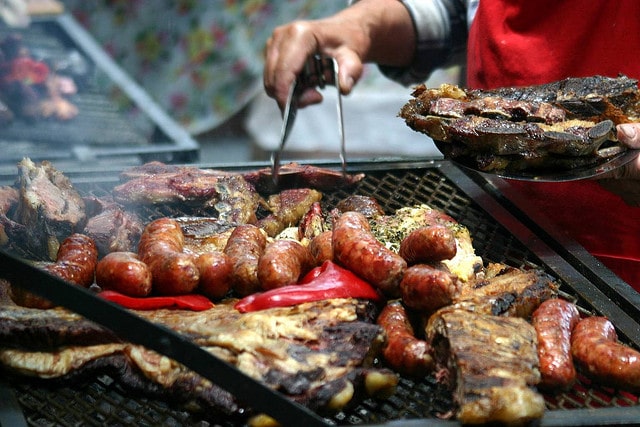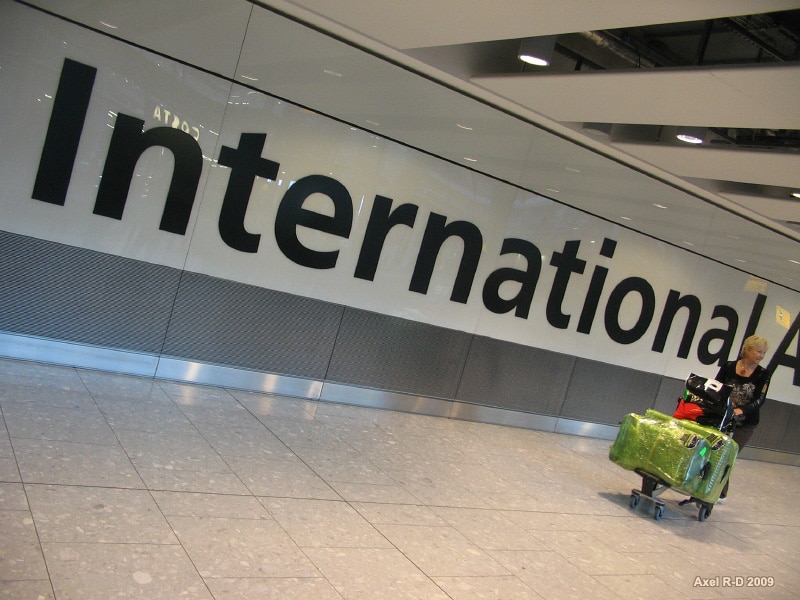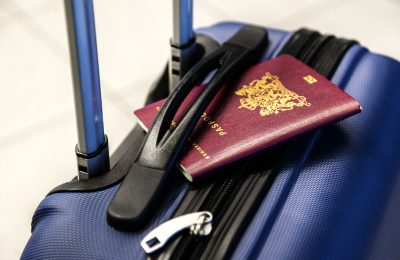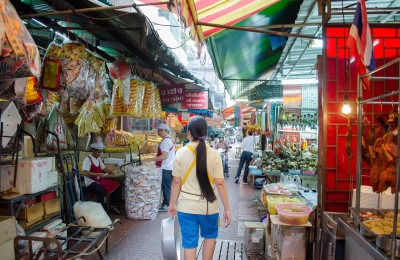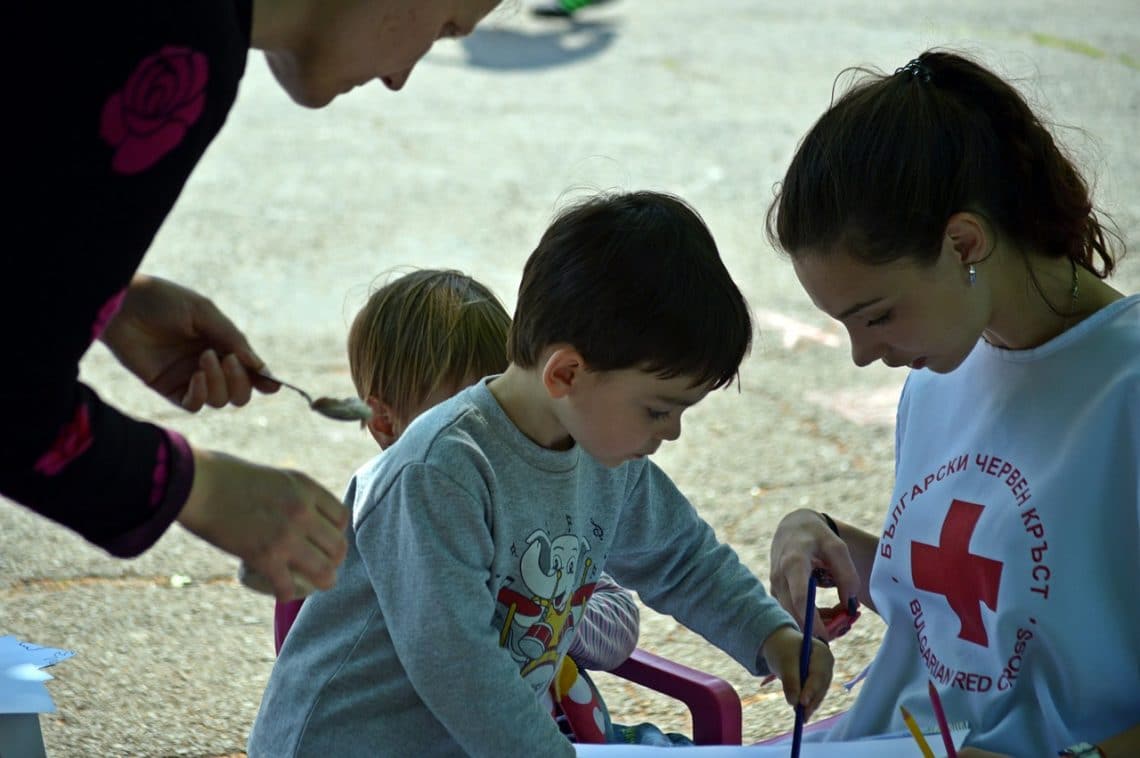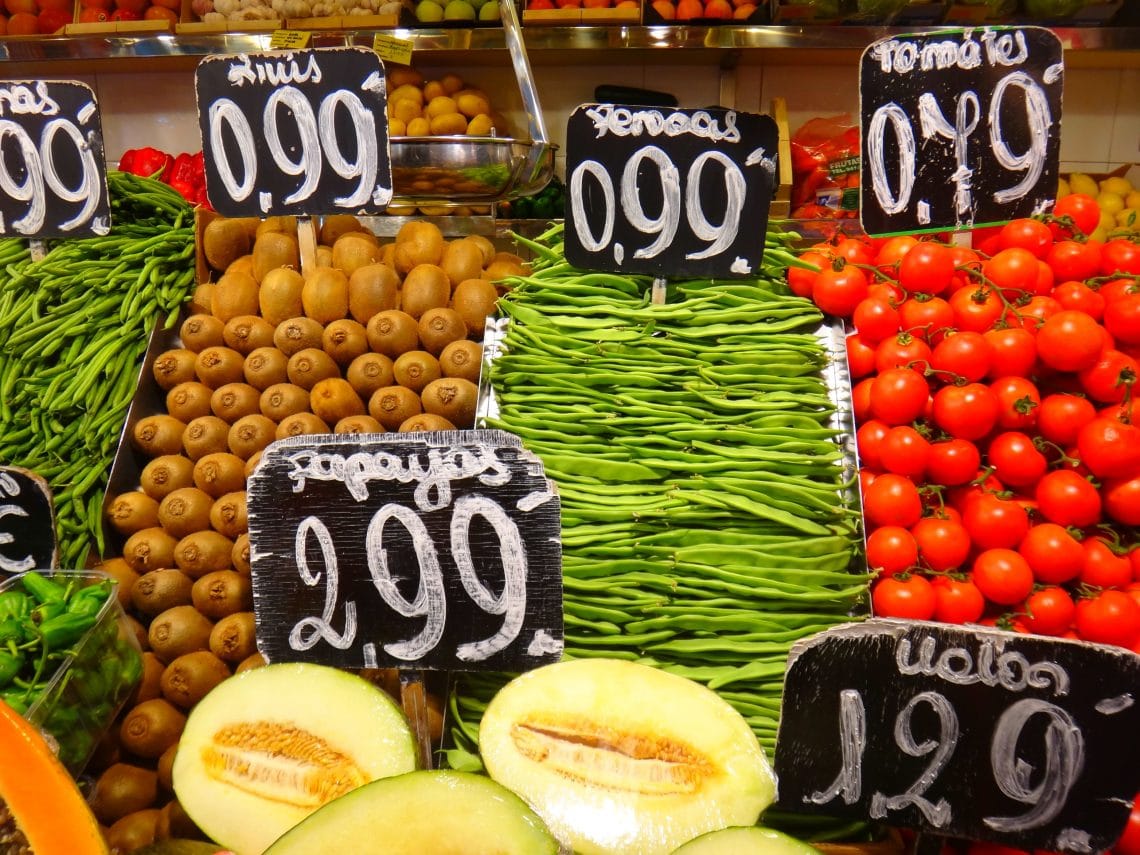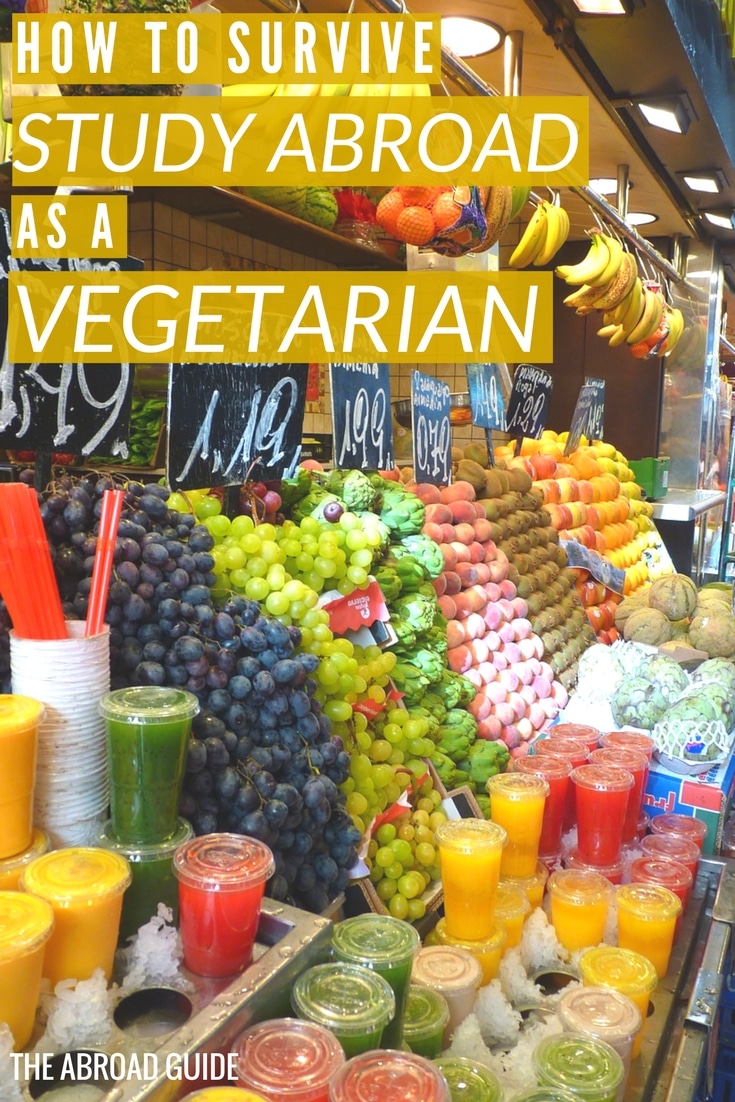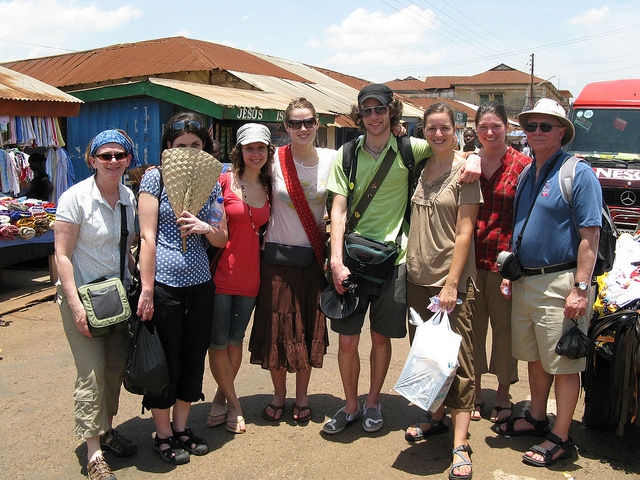Studying abroad as a vegetarian can be tricky and sometimes frustrating, but after visiting over 30 countries in the past three years, I’ve learned a thing or two about being a traveling veggie. These are my top tips for vegetarians studying abroad that will be sure to help you effortlessly roam the globe while being vegetarian.
Learn how to say “I can’t eat meat” in every language you plan on encountering
Saying can’t rather than don’t is key. I found that many people find the word don’t as an invitation to help you try something new, explaining your choice to be vegetarian in a language you can’t speak will prove to be very challenging not to mention awkward as hell. Can’t implies that this isn’t a choice or something you can be convinced to change. If worse comes to worse and your waiter or homestay mom just won’t give up, say you have an allergy and make a choking gesture. Hey, sometimes a little white lie is necessary!
The Google Translate app is free and even shows you how to pronounce the whole sentence you’ve asked to translate, so if you have zero experience with the language you’re trying to speak, you can just hold your phone up to the waiters ear until they understand. That’s not a joke– I had to do that in Thailand multiple times.
Bring a few of your favorite nutrition bars and snacks with you
Nutrition bars are an easy thing to throw into your suitcase that will surely come in handy at some point during your study abroad semester. They last for a really long time, don’t take up much space and they’ll be able to hold you over for a couple of hours when you find yourself in a tight spot while traveling. I personally love Luna Bars, but try out a few others out before you leave and bring a box with you. You can even attempt to make your own while you’re abroad.
Read next: 6 Cheap, Easy and Healthy Hostel Recipes
Research vegetarian restaurants before traveling
You’d be surprised how many places around the world have great vegetarian and vegan joints; Milan even has a Michelin-starred vegetarian restaurant! But you won’t know where these awesome places are unless you research them. Check out city-specific blogs and vlog, or sites like Yelp and Trip Advisor for some recommendations that your non-vegetarians might enjoy too.
Do some food prep before long travel days
This is probably the most important tip of them all. ALWAYS be prepared before a long flight, bus or train ride. Take it from me, public transportation is generally not vegetarian friendly. Have fresh fruit and veggies already packed from a local food store or market. You can make and pack up some sandwiches before you leave– tomato and mozzarella is so easy and cheap– have raw veggies already cut, or buy fruit that is easy to eat on the go— think: bananas, apples, clementines, pears, berries. Snacks like nuts are nutritious, stay fresh for a long time and are easy to throw into a backpack.
When I’m about to go on a long-haul flight, I make sure that my belly is full before taking off. If I have a super early or late evening flight, I’ll go to my favorite deli and pack a meal for the journey. Take it from me, nothing is worse than being STARVING on a 13 hour flight with nothing to eat but chicken! You will NOT enjoy the ride if you are hungry, grumpy and nauseas.
Also, if you are booking a long flight, make sure you look at the section that asks if you have special diet requirements. If you don’t see this option while booking, it’s a good idea to call the airline and let them know beforehand so they can prep a veggie meal for you.
Read next: How to Save Money on Food While Traveling
Bring your vitamins… and TAKE THEM!
This may sound like a no brainer but they can be easily left behind when you’re thinking of the one million things you think you can’t live without when you’re about to study abroad. Take a Ziploc full of the multi-vitamin you normally take and remember, B12 is essential; you don’t want to have to deal with a b12 deficiency while abroad.
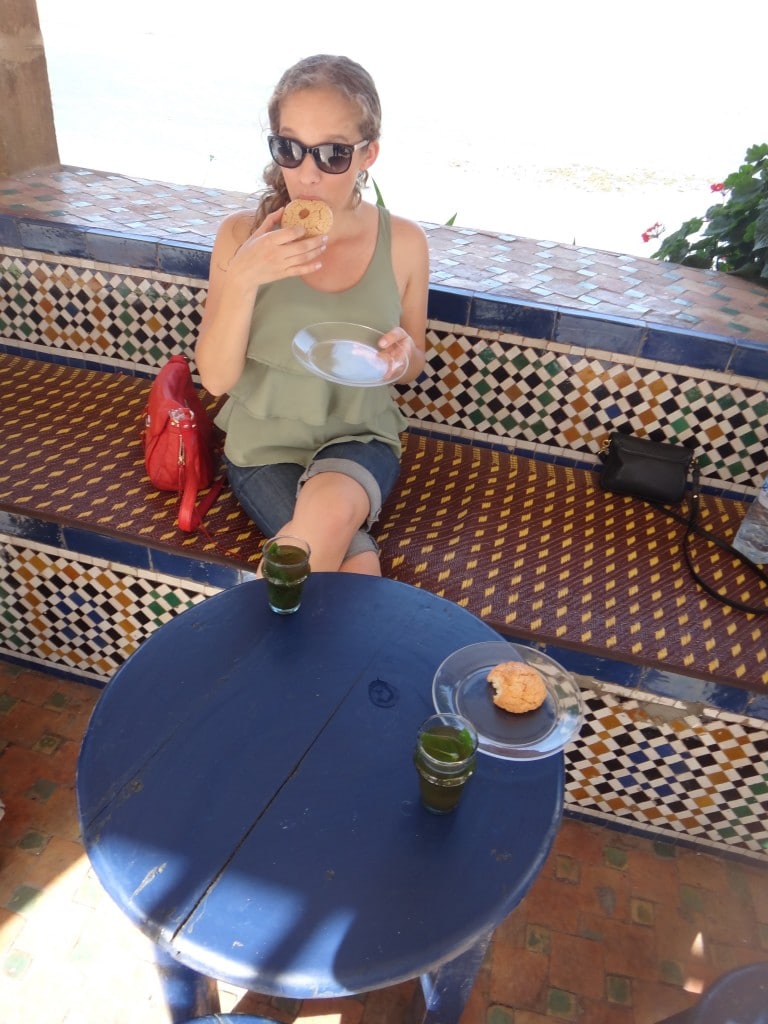
Shop the local markets for organic fruits and vegetables
In big cities, local markets may have little stands or restaurants that have GREAT food fit for vegetarians. Two of my favorite markets to pick up food while traveling are La Boqueria in Barcelona and Mercato Sant’Ambrogio in Florence. You’ll also probably save yourself some money if you buy local.
Cook at home when you can
Cooking at home will help you save money, means you can eat exactly how you want to, and will keep you feeling healthy. But with that said, food is a very important part of any culture so don’t stay in ALL the time. Again, do some research for your study abroad city and check out the best vegetarian-friendly food spots.
Consider taking a vegetarian cooking class in your new city
This is a great way to learn about the culinary side of the culture you’re in, a great way to meet new people, and a fun way to spend an afternoon in your new home. You’ll also find some people to try out all of those new vegetarian restaurants that you’ve found with.
Read next: How to Meet Locals While Studying Abroad
Be prepared to eat a lot of eggs
If you are an egg-eating vegetarian, your life will be a lot easier (sorry vegans.) Most cultures eat eggs, which will be an easy way to get your protein in. They are also super easy to cook yourself in a ton of different ways, so if you’re not a Wolfgang Puck in the kitchen, don’t worry.
Consider investing in a blender
If you are studying abroad for the entire year, this will be well worth the investment. You can make breakfast smoothies or soups whenever you please, and smoothies are such a great way to start the day, especially if you have a big day of train travel or hiking ahead of you.
Pack any powders you normally add to your smoothies in a Ziploc bag and throw them in your checked luggage when you’re heading to your study abroad destination. Hemp protein and ground chia seeds are my favorites and are jam packed with essential vitamins. Some seeds and organic items aren’t allowed into certain countries though, so be sure to check the immigration laws of the country you’re studying in first, to make sure you don’t get a fine at customs.
And last but not least, relax! You are NOT going to die of malnutrition, I promise. So if you’re living off of more bread and cheese than you normally do, don’t sweat it. You can get back into your normal routine when you get back home. Traveling is about trying new things and being out of your element, and that includes your diet.
Happy travels, veggie friends!












